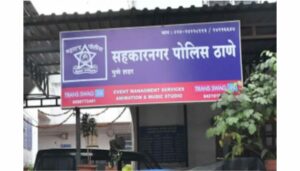Mahindra-TERI Centre of Excellence launches Pune Water Sustainability Assessment Report
October 19, 2020, Pune: The Mahindra-TERI Centre of Excellence (CoE), a joint research initiative of Mahindra Lifespaces® and The Energy and Resources Institute, has launched a report on the water systems and potential water challenges in Pune Metropolitan Region. The report was launched at a virtual event featuring a panel discussion with Dr. Himanshu Kulkarni, Head, Advanced Centre for Water Resources Development and Management (ACWADAM); Mr. Ravindra Sinha, Mission Groundwater; Mr. Amar Tendulkar, Chief of Design and Sustainability, Mahindra Lifespaces; Ms. Rachna Nagannawar, Architect, Founder and Head, Biophilic Designers; and Mr. Sandeep Sonigra, Co-Founder, Orange County Group, Pune.
The report follows a unique, integrated, ‘One Water’ methodology that incorporates multiple aspects of water systems – such as stormwater, wastewater and water supply networks – to recommend best practices for holistic urban water management. It also highlights the potential water risks faced by Pune City Taluka and the Pimpri Chinchwad City Taluka, including those associated with water sources, governance, infrastructure, and demand & supply.
Speaking at the launch of the report, Amit Pal, Chief Project Officer, Mahindra Happinest® said, “Water is one of the most precious natural sources and is critical for the environmental sustainability of urban human settlements. As a pioneer of green homes and developments across India, Mahindra Lifespaces® is committed to a collaborative and research-driven approach towards sustainable urban lifestyles and practices. We hope this assessment report will enhance awareness of Pune’s present and future water challenges across stakeholder communities; and strengthen action to achieve water sustainability in the city.”
Sanjay Seth, Senior Director, The Energy and Resources Institute (TERI) said, “’Water Sustainability Assessment of Pune’ is a first-of-its-kind of study for a city conducted jointly by Mahindra Lifespaces® and The Energy and Resources Institute as a part of Mahindra-TERI Centre of Excellence. The report focuses on macro-level analysis of water management at the city level along with a micro-level analysis of water use in residential housing townships. As an outcome of the study, ‘Guidelines for Demand Side Water Use for Residential Townships’ would be further developed for the benefit of consumers.”
Key report findings:
- Estimated built-up area in 2025 (per existing urban growth trends):
| Pune Municipal Corporation | Pimpri Chinchwad |
| 205.49 KM2 (more than thrice of what it was in the early 1990’s) | 187.94 KM2 (more than twice of what was in 2011) |
- Pune City Taluka will have to find alternative sources and practice demand-side water management.
| Estimated population of Pune City Taluka in 2025 | Estimated water demand in Pune City Taluka in 2025 |
| 4.2 million | 853.5 MLD (millions of litres per day) |
- The installed capacity of water treatment plants in Pimpri Chinchwad (428 MLD as of 2019) will likely be inadequate for the city’s population in 2025. The city’s water demand is expected to reach 577 MLD by 2025.
- Pune faces a significant risk of pollution of its natural waterways:
| Current STP installed capacity | Projected wastewater generation in 2025 | |
| Pune City Taluka | 567 MLD | 682.8 MLD
|
| Pimpri Chinchwad | 317 MLD | 461.6 MLD |
Key report recommendations for sustainable water management in Pune Metropolitan Region:
- Identification and filling up of data gaps related to groundwater availability and extraction for Pune city
- Provision of city-wide sewerage network to ensure complete collection of sewage
- 100% coverage of metered connections across the city to ensure revenue collection and controlled water usage
- Zero discharge of untreated wastewater from the city into its natural water bodies
- Identification and assessment of potential water sources – there are potential alternative water sources available, which, if tapped efficiently, could help combat water scarcity.
- Treated water from STPs can serve as an effective alternative to freshwater extraction from natural water bodies and can be reused for non-domestic purposes.
- The use of rainwater harvesting systems for storage and reuse should be promoted. This could be done by promoting installation of localised rainwater storage systems in new buildings for domestic purposes. This will also contribute to a reduction in water bills.
The Mahindra-TERI Centre of Excellence leverages state-of-the art research techniques, tools and performance measurement solutions to boost the development of green buildings in India. The joint research initiative is working towards developing open-source and science-based solutions for India’s real estate sector.





